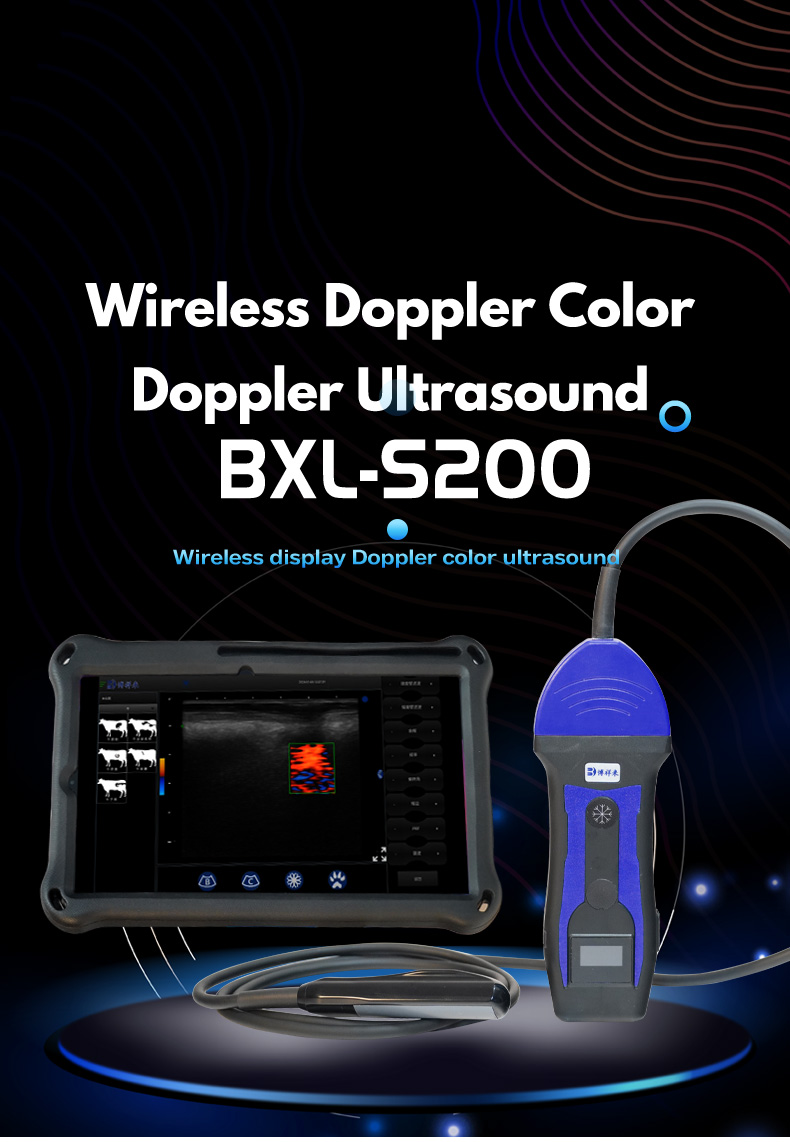When it comes to managing a pregnant mare, accurate monitoring and timely detection are essential for ensuring the health of both the mare and her foal. One of the most reliable methods of checking on the progress of a pregnancy in horses is through ultrasound technology, and the BXL horse ultrasound pregnancy offers veterinarians a detailed, real-time view of the mare’s condition. In this article, we’ll explore the benefits of using BXL ultrasound for pregnancy detection, how the procedure works, and why it’s an essential tool for horse breeders and owners.

What is BXL Horse Ultrasound Pregnancy?
BXL refers to a brand of ultrasound equipment that’s used for equine diagnostics, including pregnancy detection. A BXL horse ultrasound pregnancy is an imaging procedure that uses high-frequency sound waves to create clear, detailed images of the mare’s uterus and developing foal. This method allows veterinarians to monitor the progression of the pregnancy, detect any potential complications, and assess the health of the foal.
Ultrasound is considered the most accurate and reliable way to detect pregnancy in horses. While there are other methods, such as blood tests and rectal palpation, BXL ultrasound provides a non-invasive and highly accurate alternative, giving real-time images of the developing foal.
When Should You Use a BXL Ultrasound to Check for Pregnancy?
Pregnancy detection in mares is typically performed between 14 and 16 days after ovulation, but the exact timing can vary. Earlier ultrasounds, as early as 10-14 days post-breeding, can help confirm pregnancy, although the foal may not be visible at this stage.
Early Pregnancy Detection
- 10-14 days post-ovulation: While some mares may show signs of pregnancy as early as 10 days after ovulation, it is often difficult to visualize the embryo at this stage. However, a BXL ultrasound can detect early embryonic development, allowing for early intervention if necessary.
Confirmation of Pregnancy
- 16-20 days: This is typically when the embryo becomes large enough to be clearly visible on an ultrasound, confirming the pregnancy and providing insight into the health and development of the foal.
Monitoring Pregnancy
- At 30-40 days: This period marks a key stage in fetal development, where the ultrasound can help ensure that the pregnancy is progressing normally and that the foal is developing correctly.
Later Stages of Pregnancy
- 60-90 days: Ultrasounds in the later stages of pregnancy allow the veterinarian to check the health of the foal, confirm the development of organs, and monitor for any complications that might arise, such as twins or developmental abnormalities.
How Does BXL Ultrasound Pregnancy Work?
The process of performing a BXL horse ultrasound for pregnancy is non-invasive, quick, and relatively stress-free for the mare. Here’s what to expect during the procedure:
Step 1: Preparation
The mare will be positioned in a safe and comfortable environment, typically standing in a stall or in a paddock. The vet may clean the area of the abdomen or vulva with a disinfectant if conducting an external ultrasound or may use a rectal ultrasound probe to gain clearer images of the uterus.
Step 2: Ultrasound Procedure
The veterinarian will apply a gel to the area where the ultrasound probe will be used. This gel helps transmit sound waves and ensures a clear image on the ultrasound screen. A hand-held ultrasound probe will then be moved over the mare's abdomen or inserted into the rectum, depending on the type of scan being conducted.
For a transabdominal ultrasound, the probe is placed on the mare’s belly, and the vet looks for a developing embryo or fetus, fluid-filled structures, and changes in the uterus that suggest a viable pregnancy. In some cases, a transrectal ultrasound may be performed, especially in early pregnancy, for more detailed images of the uterus and embryo.
Step 3: Analysis
The ultrasound images will be displayed on a screen in real-time, and the veterinarian will analyze the images to determine the status of the pregnancy. The vet can detect the presence of a heartbeat, fetal development, and any early signs of complications like twins or cysts.
Step 4: Follow-Up
Depending on the findings, the veterinarian may suggest follow-up ultrasounds to monitor the pregnancy's progress. If complications are detected early, appropriate interventions can be taken to ensure the best chance of a successful pregnancy.
Benefits of Using BXL Ultrasound for Pregnancy Detection
1. Early Detection of Pregnancy
BXL ultrasound can detect pregnancy as early as 10-14 days post-breeding. Early confirmation helps you make decisions about the mare’s care and management, including diet, exercise, and veterinary attention.
2. Accurate Pregnancy Confirmation
Unlike some other pregnancy tests, ultrasound provides clear, visual confirmation of pregnancy. It can also determine if there are multiple embryos (twin pregnancies), which can lead to complications and may require special care.
3. Health Monitoring of the Foal
With the ability to detect the heartbeat and monitor the foal’s development, BXL ultrasound gives you peace of mind that your foal is growing properly. If any abnormalities are detected, your veterinarian can intervene early, potentially saving the foal’s life or preventing complications.
4. Non-Invasive and Safe
Ultrasound is a safe, non-invasive procedure with no known risks to the mare or the developing foal. It offers a stress-free experience for both the animal and the owner, especially compared to more invasive methods like rectal palpation.
5. Monitoring for Complications
Ultrasound can help detect complications early, such as:
- Twin pregnancies: Identifying twins early is crucial, as twins often cause problems for both the mare and the foal. In some cases, one twin may need to be terminated to improve the survival chances of the other.
- Fetal abnormalities: Detecting any issues with the foal's development allows for early intervention and better management of the pregnancy.
- Mare health: Ultrasound can also detect issues with the mare’s uterus or ovaries, helping prevent potential complications during the pregnancy.
Cost of BXL Horse Ultrasound for Pregnancy
The cost of a BXL horse ultrasound for pregnancy varies based on factors such as location, the veterinarian's fees, and whether the mare is being checked early or later in the pregnancy. On average, a pregnancy ultrasound can range from $200 to $500 per session. Additional costs may apply if further ultrasounds are required throughout the pregnancy or if complications arise.
tags: Horse Ultrasound PregnancyHorse UltrasoundBXL Horse Ultrasound


